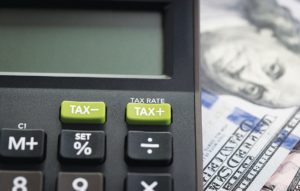Thousands of small businesses have received hundreds of millions of dollars in state recovery grants since December, helping them to pay the rent and make payroll, but one top House Democrat said Tuesday he’s worried many of these businesses owners might not know what’s coming – a tax bill.
State Rep. Aaron Michlewitz, a Boston lawmaker and chair of the House Ways and Means Committee, raised his concerns over the tax status of the small business recovery grants at the first annual budget hearing on Gov. Charlie Baker’s $45.6 billion spending plan for fiscal 2022.
“The businesses in my district have been very thankful but I don’t think many people know there’s going to be a tax bill down the road,” said Michlewitz, who represents Boston’s North End and parts of other neighborhoods, home to many restaurants.
Administration and Finance Secretary Michael Heffernan told the Ways and Means Committees that the governor’s office is involved in talks with state and federal lawmakers about changing the laws to waive taxes on all state-issued relief payments and some federal Paycheck Protection Program grants.
While Congress agreed to exempt forgiven PPP loans from federal taxation in December, a subset of those grants to small businesses that do not pay corporate taxes, but pass revenue through to owners as income could still be taxed at the state level. Some states have chosen to waive taxes on those grants, but in 19 states the funding remains taxable in some form, according to the Tax Foundation.
Massachusetts automatically conforms to federal corporate tax law, but not as it relates to income. Budget officials said that means that without a change in state law small business owners will be liable for about $150 million in taxes on forgiven PPP loans, and between $25 million and $35 million on state grants awarded through the Massachusetts Growth Capital Corporation.
Baker launched a $668 million small business recovery program in late December, utilizing funds the state received through the federal CARES Act and the Coronavirus Relief Fund. So far, the administration has awarded $563 million to 12,320 businesses to help COVID-19 impacted employers cover payroll, rent and other expenses.
The combined taxes owed to Massachusetts on the state and federal recovery grants total about $175 million, officials said, and were not included in Baker’s budget.
“What we’re actively discussing with our counterparts in the [state] legislature is making the PPP at the income level, which is primarily small businesses, tax free at the state level,” Heffernan said.
The hearing was the first of what will be a series in the coming weeks focused on Baker’s budget, which currently relies on $1.6 billion in reserves and would trim state spending by about $300 million, or 0.7 percent, from the current budget levels.




 |
| 


